
Who makes our Australia-New Zealand combined legends World Cup XI?
Trans-Tasman clashes in World Cup cricket have always made for an engrossing watch. While Australia are miles ahead when it comes to silverware, with five titles to the Kiwis’ none, New Zealand have had their moments.
Here’s a composite side we’ve put together based purely on World Cup performances.
1. Adam Gilchrist
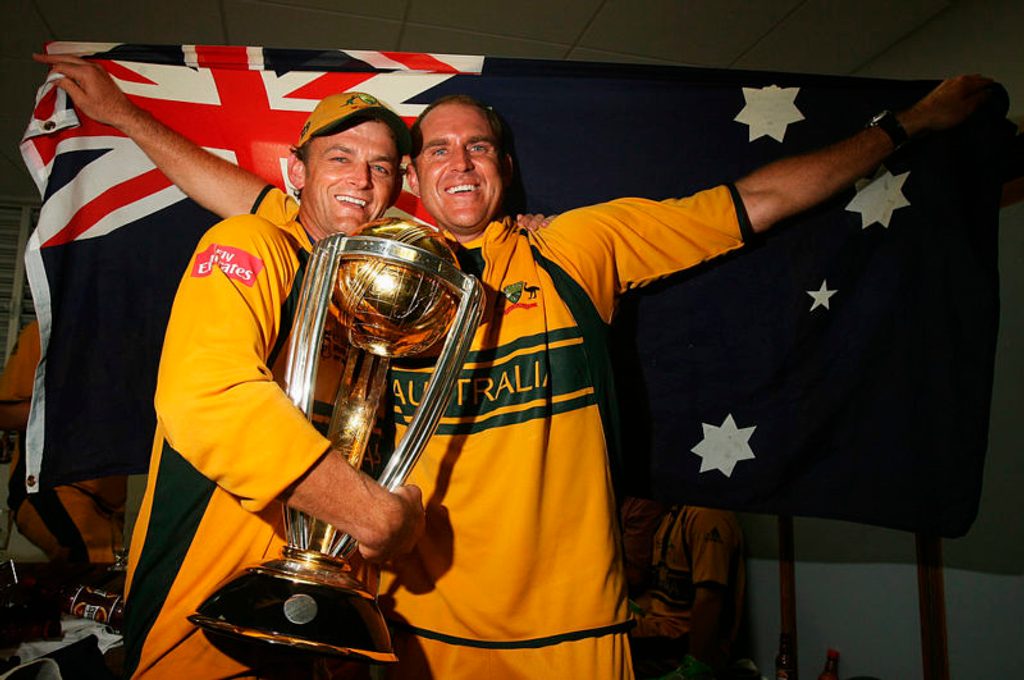 Gilchrist and Hayden formed one of ODI cricket’s most destructive opening pairs
Gilchrist and Hayden formed one of ODI cricket’s most destructive opening pairs
Few things can match the liveliness of Gilchrist’s flowing bat, forever in the quest to thump bowlers. Armed with brilliant hand-eye co-ordination, and the zeal of a teenager, Gilchrist played a key part in three Australia title wins, capping off his World Cup career with a 149-run effort in the 2007 final against Sri Lanka.
The start with the bat, in 1999, might not have been awe-inspiring, but he rose to the occasion in 2003, posting four 50+ scores, and affecting 21 dismissals – the most by any wicketkeeper in a single World Cup.
1,085 CWC runs @36.16, 1 century; 52 dismissals
2. Matthew Hayden
There are several contenders for the opening role, but Hayden’s brutal run through 2007, towards the back-end of his career, cannot be disregarded. An imposing presence, Hayden was Australia’s battering ram at the top.
While 2003 was disappointing, considering his raging international form back then, Hayden broke all shackles four years later, emerging as the leading run-scorer in a ruthless display of batting authority.
Having blasted a career-best 181 days before the World Cup, Hayden was at his absolute best in 2007, blasting three centuries, along with a string of steady starts, through a dream run that ended with Australia’s hat-trick of World Cup titles.
987 runs @51.94, 3 centuries
3. Ricky Ponting
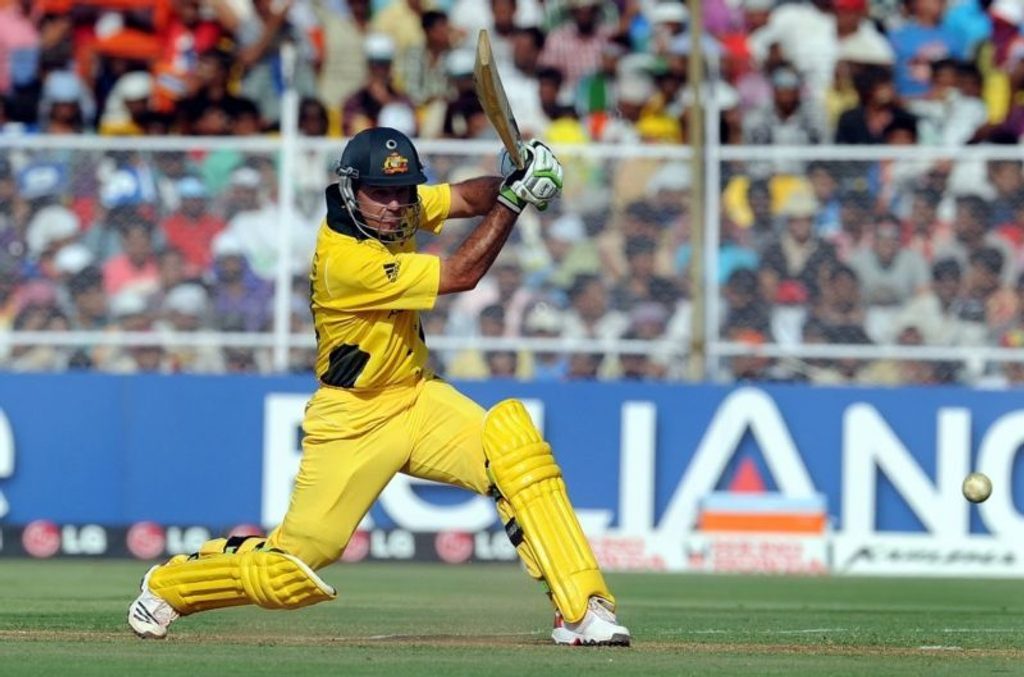 Ponting’s last World Cup century came against India in 2011
Ponting’s last World Cup century came against India in 2011
Unshakeable to the core, Ponting is, by far, the most successful World Cup captain, losing just three of his 29 games. With the bat, he’s second in the overall run-scorer’s list, behind only Sachin Tendulkar.
His first ton came in only his fourth World Cup game, as a gutsy 21-year-old in 1996, against an illustrious West Indies attack, and the march continued for 15 more years.
Of Ponting’s five tons, none was as punitive as his 140 in the 2003 finals, highlighting how he had a knack for raising his game for the biggest of occasions. Apart from 2011, he scored at least 350 runs in all his World Cup campaigns.
1,743 CWC runs @45.86, 5 centuries
4. Martin Crowe
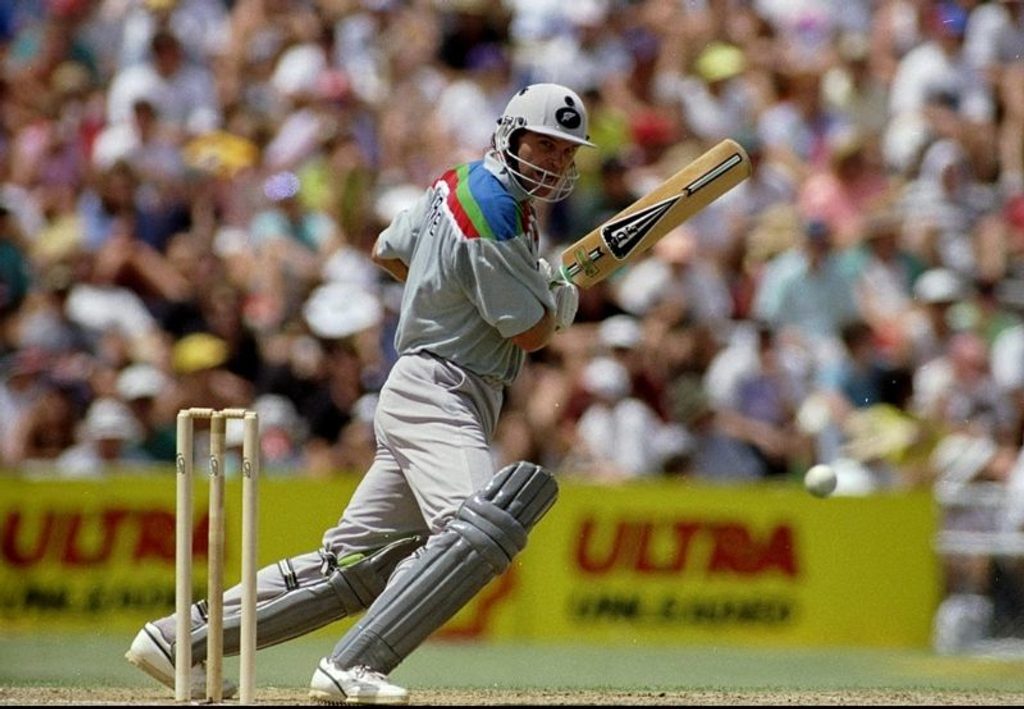 Crowe scored a century and eight fifties in his World Cup career
Crowe scored a century and eight fifties in his World Cup career
Martin Crowe captained the Kiwis to a spirited run in 1992, leading from the front in an exhibition of consistently classy stroke-making.
Three World Cup campaigns saw him gather close to 900 runs, half of which came in 1992, where he finished as the leading run-scorer, averaging 114 from nine games.
Against defending champions Australia in the World Cup opener, Crowe scored an exact hundred that paved the way for four more fifties through the tournament, even though his 91 in the semis, hampered by a hamstring niggle, wasn’t enough to see the Kiwis through.
880 CWC runs@55.00, 1 century
5. Mark Waugh
Junior’s butter-smooth batting was an integral part of Australia’s three World Cup campaigns, most notably in 1996 when he was the second-highest run-getter overall, averaging a whopping 81.
That edition, held in Asia, saw Waugh notch up three centuries; two back-to-back tons against India and Kenya and one facing New Zealand in the quarter-finals.
He blew hot and cold in 1999, mixing a century and two fifties with single-digit scores. His contribution on the field stood out, though, including a sensational flying catch in the slips to remove Wajahatullah Wasti in the final against Pakistan.
1,004 CWC runs @52.84, 4 centuries
6. Steve Waugh
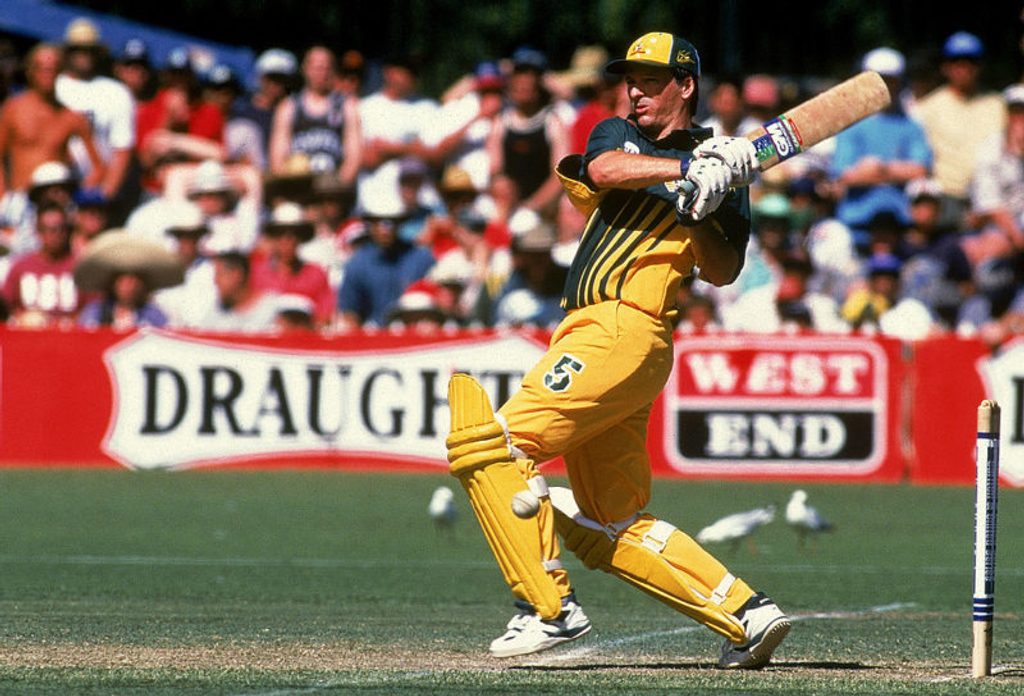 Steve Waugh was a part of four Australian World Cup campaigns
Steve Waugh was a part of four Australian World Cup campaigns
Waugh’s steely resolve with the bat played a leading role in the 1999 triumph of Oz, but it was his nagging medium-pace that garnered attention towards the early part of his career. He took a combined 19 wickets in 1987 and 1992, before unfurling his batting masterclass in the next two editions.
In 1996, he played supporting cast to twin brother Mark’s brilliant run, notching three fifties, before spearheading Australia towards the title three years later, with invaluable contributions in tight chases. His unbeaten 120 against South Africa was the cherry on the cake.
978 CWC runs @48.90, 1 century; 27 CWC wickets @30.14
7. Scott Styris
Styris had enviable numbers in the World Cup, representing the Kiwis in three editions. His best year was in 2007, when he averaged a whopping 83 with the bat, hitting a century and four half-centuries in nine innings, while picking up nine wickets at 26.88 with his gentle medium pace.
In 2003, Styris averaged a healthy 54 with the bat, smacking a career-best 141 against Sri Lanka in a failed 225-run chase, highlighting his versatility by soldiering on when the entire batting fell around him. He also picked up a total of 17 wickets in 26 matches overall, proving his worth across departments.
909 CWC runs @53.47, 2 centuries; 17 CWC wickets @32.47
8. Jacob Oram
A gutsy all-rounder, Oram’s multi-faceted contribution to the Kiwi cause extended across three campaigns. The country’s most successful pace bowler in World Cup history, Oram was consistently good with the white ball, even though his batting was a bit underwhelming on the grandest stage.
With 36 scalps in 22 World Cup games at an impressive average of 21.33, he was an immovable entity in New Zealand’s era of bits-and-pieces cricketers. Couple it with his batting pyrotechnics and you have a complete package at No.8.
36 CWC wickets @21.33
9. Shane Warne
Despite missing out in 2003, Warne’s ravaging leg-spin was the zing Australia’s attack needed through their golden period, across two editions in 1996 and 1999. He played 17 games, plucking 32 wickets with his lethal spells, particularly directed at the top order.
Four-wicket hauls in the semis and final, against South Africa and Pakistan respectively, proved his mettle as an out-and-out match-winner. His attacking brand of bowling, replete with variations, was effective in 1996 too, as he picked up 12 wickets from seven games in Australia’s march to the finals.
32 CWC wickets @19.50
10. Shane Bond
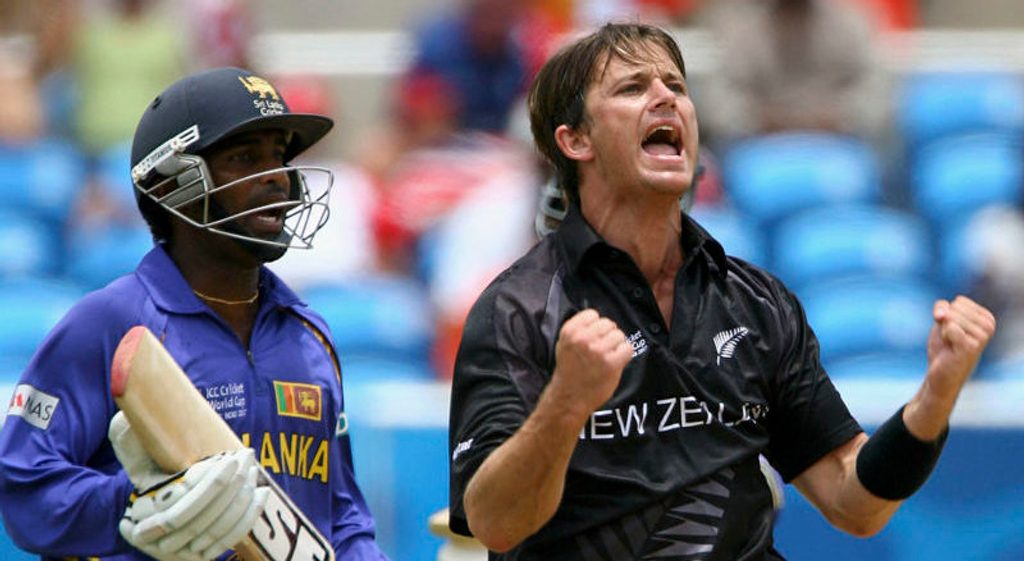 Bond’s stop-start career saw him play only two World Cup editions
Bond’s stop-start career saw him play only two World Cup editions
Shane Bond’s express pace lit up international cricket only in short bursts, but his injury-plagued career included two World Cups.
His numbers across those two editions were spectacular, but they didn’t highlight the fiery impact he had on a laid-back Kiwi outfit of the early 2000s. He tore open champions Australia in the group stages with a six-wicket masterclass (6-23), dismantling their in-form top-four, and ended with 17 wickets in eight games in 2003.
He added 13 more to his tally four years later in Black Caps’ semi-final finish.
30 CWC wickets @17.26
11. Glenn McGrath
Glenn McGrath’s niggling accuracy was a constant in Australia’s ODI dominance across the late 1990s and 2000s, ranging through four editions. The most successful World Cup bowler, McGrath had a relatively silent outing in 1996 but built a legacy over the next three editions.
In his final assignment for Australia, he ended as the highest wicket-taker in 2007, presenting an impressive account of his longevity. Several iconic performances stood out, some of them being his 7-15 against a hapless Namibia (2003), his inspired opening spell against the Indians across editions, and the five-for against West Indies in 1999.
71 CWC wickets @18.19








